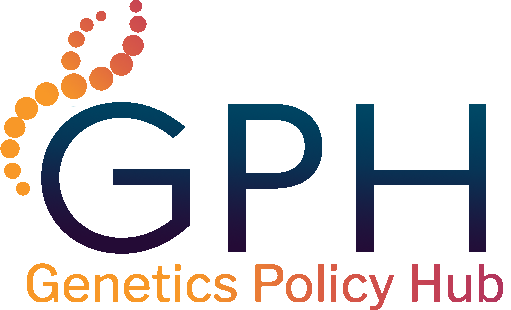From 2004 to 2024, the Health Resources and Services Administration (HRSA) funded the National Coordinating Center for the Regional Genetics Networks (NCC). NCC developed and maintained the Genetics Policy Hub.
With the conclusion of NCC funding, the Genetics Policy Hub (GPH) will no longer be updated or maintained. Information on GPH should be used for historical reference only.
DC
This data is meant to be used for educational purposes to inform providers, patients, insurers, and state Medicaid agencies what genetic services may or may not be written into each state’s Medicaid policy. The database is not meant to indicate or imply whether a certain program will cover a specific service, since many decisions are made on a case by case basis. If you have specific questions about whether a service is covered, you should reach out to your plan administrator. Please see this disclaimer below for more information.
Medicaid Coverage Information Published
State Contact Information
Melisa Byrd, Senior Deputy Director/State Medicaid Director
melisa.byrd@dc.gov
DC Department of Health Care Finance
441 4th Street, NW, 900S, Washington, DC 20001
Phone: (202) 442-5988
Fax: (202) 442-4790
Email: dhcf@dc.gov
General Genetic Testing Criteria
Genetic Testing Not Covered
State Specific Definition
Genetic Services for Children
Genetic Counseling Requirement
The rule making process for the Maryland (and DC) GC Licensure Bill is currently underway with the Maryland Board of Physicians. Applications for licensure are not yet open, and we will provide a link on our website to the Maryland Board of Physicians Allied Health Professionals website once instructions and the application are available.
Metabolic Formula Coverage Legislation
D.C. Law 24-168. Medically Necessary Foods Coverage Act of 2022
Metabolic Formula Coverage & Criteria
A health benefits plan issued, renewed, extended, or modified in the District by a health insurer after December 31, 2022, shall provide coverage for the cost of medically necessary food ordered as necessary by a provider for the following diseases or conditions:
- Inflammatory bowel disease, including Crohn’s disease, ulcerative colitis, and indeterminate colitis;
- Gastroesophageal reflux disease that is nonresponsive to standard medical therapies;
- Immunoglobulin E- and non-Immunoglobulin E-mediated allergies to food proteins;
- Food protein-induced enterocolitis syndrome;
- Eosinophilic disorders, including eosinophilic esophagitis, eosinophilic gastroenteritis, eosinophilic colitis, and post-transplant eosinophilic disorders;
- Impaired absorption of nutrients caused by disorders affecting the absorptive surface, functional length, and motility of the gastrointestinal tract, including short bowel syndrome and chronic intestinal pseudo-obstruction;
- Malabsorption due to liver or pancreatic disease;
- Inherited metabolic disorders; and
- Any other diseases or conditions as determined by the Mayor through rulemaking
“Medically necessary food” means food, including a low-protein modified food product or an amino acid preparation product, a modified fat preparation product, or a nutritional formula that is specially formulated and processed for the partial or exclusive feeding of an individual by means of oral intake or enteral feeding by tube, and intended for dietary management of an individual who, because of therapeutic or chronic medical needs, has limited or impaired capacity to ingest, digest, absorb, or metabolize ordinary foodstuffs or certain nutrients or who has other specially medically determined nutrient requirements, the dietary management of which cannot be achieved by modification of the normal diet alone.
Prior Authorization Requirements
Prior Authorization Forms
Fee Schedule
BRCA Testing Coverage
(a) An individual health plan or group health plan and health insurance coverage through Medicaid or the D.C. Healthcare Alliance program shall provide coverage for, and shall not impose any cost-sharing requirements on, women for the following preventive health services and products:
1. Risk assessment and genetic counseling and testing using the Breast Cancer Risk Assessment tool approved by the National Cancer Institute
Requirements for BRCA
Cystic Fibrosis Screening
Coverage is available, but criteria is unknown.
Hereditary Cancer Testing Coverage
Lynch Syndrome Testing Coverage
No coverage
Microarray Testing
Coverage is available only for prostate mRNA gene profiling.
Newborn Screening
DC Medicaid reimburses the newborn screening test.
Panel Testing
Coverage is available, but criteria is unknown.
Pharmacogenetic Testing
No coverage available.
Prenatal Testing Offered
The Department of Health Care Finance (DHCF) is committed to ensure pregnant women in the District have access to state-of-the-art prenatal screening as recommended by the American College of Obstetricians and Gynecologists (ACOG) in the professional setting. Transmittal #22-19 provided notice of coverage and reimbursement of cell-free DNA-based non-invasive prenatal laboratory
testing that looks for genetic abnormalities during pregnancy. These tests are collectively referred to as non-invasive prenatal testing (NIPT) and are commonly billed with codes such as 81420 (fetal chromosomal aneuploidy) and/or 81507 (fetal aneuploidym trisomy risk) in the professional fee schedule. For other billing codes associated with NIPT, see the professional fee schedule. The reimbursement rates for these laboratory tests are based on the published guidance by CMS and in accordance with District of Columbia payment policy established at 29 DCMR §§ 988 (Medicaid Fee Schedule) and 991 (Other Laboratory and X-Ray Services). This is applicable for fee-for-service providers that bill procedure codes on CMS-1500 claim forms and for providers enrolled in Medicaid Managed Care Organization (MCO) networks.
Providers should discern medical necessity for ordering NIPT for each pregnant woman on an individual basis and follow the ACOG recommendations for when the pregnancy is a single, twin, or multiple gestation. Providers should also conduct proper counseling about the screening and diagnostic testing options when the decision is made to order the test and follow through with a treatment plan for when genetic counseling is necessary including the outcome of a positive, negative, or inclusive result. DHCF believes that access to comprehensive perinatal services, including NIPT, enables all pregnant women to engage in their care and prepare for various
outcomes identified by NIPT in coordination with their providers.
Providers may bill for NIPT using the below procedure codes. The NIPT codes do not require prior authorization:
81329: SMN1 (survival of motor neuron 1, telomeric) (eg, spinal muscular atrophy) gene analysis; dosage/deletion analysis (eg, carrier testing), includes SMN2 (survival of motor neuron 2, centromeric) analysis, if performed
81336: SMN1 (survival of motor neuron 1, telomeric) (eg, spinal muscular atrophy) gene analysis; full gene sequence
81337: SMN1 (survival of motor neuron 1, telomeric) (eg, spinal muscular atrophy) gene analysis; known familial sequence variant(s)
81420: Fetal chromosomal aneuploidy (eg, trisomy 21, monosomy X) genomic sequence analysis panel, circulating cell-free fetal DNA in maternal blood, must include analysis of chromosomes 13, 18, and 21
81422: Fetal chromosomal microdeletion(s) genomic sequence analysis (eg, DiGeorge syndrome, Cri-du-chat syndrome), circulating cell-free fetal DNA in maternal blood
81479: Unlisted molecular pathology procedure
81507: Fetal aneuploidy (trisomy 21, 18, and 13) DNA sequence analysis of selected regions using maternal plasma, algorithm reported as a risk score for each trisomy
Whole Exome Sequencing
Coverage is available for rare diseases.
Other Tests Covered
In accordance with the Code of the District of Columbia Subchapter II. Colorectal Cancer Screening Insurance Coverage at § 31-2931, Cologuard® has been approved for colorectal cancer screening effective October 1, 2021. This laboratory test is a non-invasive screening that is delivered to the home for collection, which is later interpreted for results by a certified reference laboratory and ordering provider. The screening can detect colorectal
neoplasms or cancer associated with certain genetic markers and the presence of occult blood. Cologuard® for colorectal cancer screening is for males or females with an average risk of colorectal cancer who are between ages 45 and 85, or as otherwise updated in accordance with the American Cancer Society and the United States Prevention Task Force. The test is reported using billing code 81528 (oncology colorectal scr) in the professional fee schedule. It is covered by Medicaid once every three years.
Cytogenetic testing performed on bone marrow at time of diagnosis or prior to initiating treatment (hem) is listed as a covered benefit.
Microscopic genetic analysis of tumor, including tumor immunohistochemistry (eg HER-2/NEU Estrogen receptor/Progesterone receptor) is listed as a covered benefit
Medical genetics and genetic counseling services each 30 minutes face-to-face with patient/family is listed as a covered benefit
Other Information
Medicaid-reimbursable banked donor milk shall be provided on an outpatient basis for Medicaideligible mothers with infants, and shall be provided in accordance with the following requirements:
- The infant is between the age of zero (0) and twelve (12) months, unless DHCF or its agent grants prior authorization when an infant is older than twelve (12) months.
- The infant requires banked donor milk due to the following reasons:
- Banked donor milk is necessary for the infant to thrive because the infant is fragile, preterm, or is medically compromised, such as having a diagnosis of formula intolerance, metabolic conditions, or genetic conditions requiring human milk;
Resources
Newborn Screening Reimbursement

Disclaimer: The information contained in the database has been obtained from sources believed to be reliable but NCC has not attempted to validate or confirm the information. The database may be updated periodically. However, the accuracy and completeness of the information contained in the database cannot be, and is not, guaranteed. NCC makes no warranty of the accuracy, completeness or timeliness of this information, and shall not be liable for any decision made in reliance on this information. It is the user’s responsibility to verify this information by contacting the state Medicaid agency directly.
The database contains links to third-party websites. These links are provided solely as a convenience to users and not as a guarantee, warrantee, or recommendation by NCC of the content on such third-party websites or as an indication of any affiliation, sponsorship or endorsement of such third party websites. NCC is not responsible for the content of linked third-party sites and does not make any representations regarding the privacy practices of, or the content or accuracy of materials on, such third-party websites. If you decide to access linked third-party websites, you do so at your own risk. Your use of third-party websites is subject to the terms of use for such sites.

